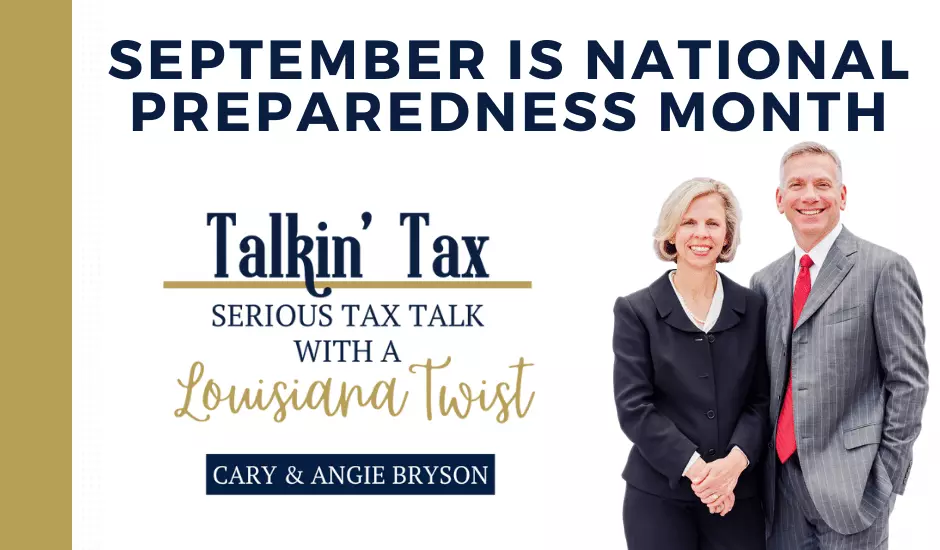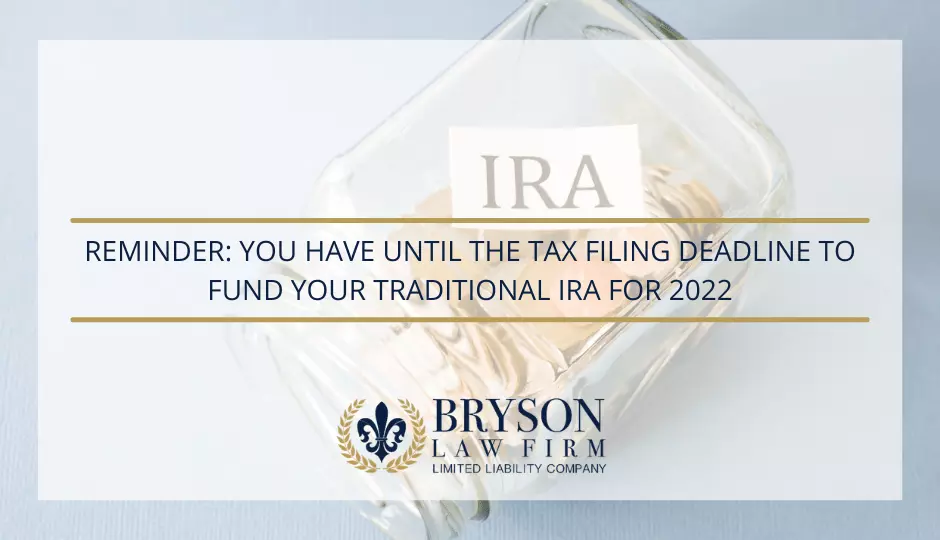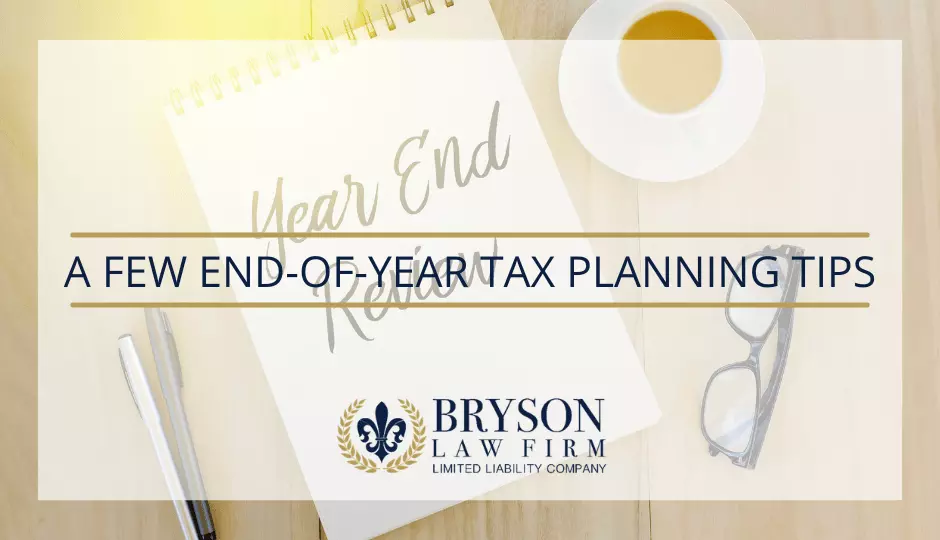Watch this month’s podcast episode HERE !
Disaster Options with the IRS
- Special tax law provisions may help taxpayers and businesses recover financially from the impact of a disaster, especially when the federal government declares their location to be a major disaster area.
- Depending on the circumstances, the IRS may grant additional time to file returns and pay taxes
- Both individuals and businesses in a federally declared disaster area can get a faster refund by claiming losses related to the disaster on the tax return for the previous year, usually by filing an amended return
Tax Relief for Hurricane Ida victims
- The IRS announced that the victims of Hurricane Ida now have until January 3, 2022, to file various individual and business tax returns and make tax payments.
- This relief is available to any area deemed by FEMA as qualifying for assistance which currently includes all of Louisiana as well as areas in neighboring states that were affected.
This January 3, 2022, deadline applies to:
- Individuals who had valid extensions to file their 2020 return due to run out on Oct. 15, 2021, will now have until January 3, 2022.
- Quarterly estimated income tax payments due on September 15, 2021, and the quarterly payroll and excise tax returns normally due November 1, 2021.
- Tax-exempt organizations, operating on a calendar-year basis, that had a valid extension due to run out on November 15, 2021
- Businesses with extensions also have the additional time including calendar-year corporations whose 2020 extensions run out on October 15, 2021.
- Penalties on payroll and excise tax deposits due between August 26 and September 10 will be abated if the deposits are made by September 10, 2021.
National Preparedness Month
The IRS wants to remind us that September is National Preparedness Month and that we all should be prepared with supplies and a game plan when natural disasters strike.
Start Secure
Keep important documents in waterproof containers in a secure space. Documents that should be secured include tax returns, birth certificates, deeds, titles, and insurance policies.
Make copies
Make digital copies of paper documents and save them on a USB so they are secure and easily portable.
Document valuables
Photographs and videos of your home and business and its contents are beneficial for insurance and tax claims.
Employer fiduciary bonds
Employers should check if their payroll service provider has a fiduciary bond in place to protect them in the event of a default by provider.
Know where to go
Find out if your financial institutions provide statements and documents electronically
IRS is ready to help
The IRS applies filing and payment relief to taxpayers located in a covered disaster area.
Preparing for a Disaster
- Planning what to do in case of a disaster is an important part of being prepared. The IRS encourages taxpayers to safeguard their records.
- Take advantage of paperless recordkeeping for financial and tax records
- Many receive bank statements and documents by email. Important tax records such as: W-2s, tax returns, and other paper documents can be scanned onto an electronic format.
- Be sure to keep electronic files backed up and stored in a safe place. Make duplicates and keep them in a separate location or copy them onto a CD or DVD
- The IRS has a disaster loss workbook for individuals and businesses that help you to combine a room-by-room list of your belongings or business equipment. Photograph or videotape the contents of your home and/or business
- Update emergency plans! Review them annually to keep up with situational changes. Put fresh batteries in your radio, know your game plan for when threatening weather approaches, go over emergency plans with new employees.
Casualty Losses
Result from damage, destruction, or loss of property due to any sudden, unexpected, or unusual event such as flood, hurricane, tornado, fire, earthquake, or volcanic eruption.
Types of casualty losses:
- Federal casualty losses
- An individual’s casualty or theft loss of personal-use property that is attributable to a federally declared disaster. *Must occur in state receiving federal disaster declaration
- Disaster losses
- A loss that is attributable to a federally declared disaster and that occurs in an area eligible for assistance pursuant to the Presidential declaration
- The disaster loss must occur in a county eligible for public or individual assistance
- Not limited to individual personal-use property. May be claimed for individual business or income-producing property and by corporations.
- Qualified disaster losses
- Also includes an individual’s casualty and theft loss of personal-use property that is attributable to:
- A major disaster declared by the President under 401 of the Stafford Act of 2016
Claiming the Loss
- Individuals may claim their casualty losses as an itemized deduction on Schedule A (Form 1040)
- For property held by you for personal use, you must subtract $100 from each casualty or theft event that occurred during the year after you've subtracted any salvage value and any insurance or other reimbursement. Then add up all those amounts and subtract 10% of your adjusted gross income from that total to calculate your allowable casualty and theft losses for the year.
When to Deduct
- Casualty losses are deductible in the year you sustain the loss, which is generally in the year the casualty occurred. You have not sustained a loss if you have a reasonable prospect of recovery through a claim for reimbursement.
- If you have a casualty loss from a federally declared disaster that occurred in an area warranting public or individual assistance (or both), you can choose to treat the casualty loss as having occurred in the year immediately preceding the tax year in which you sustained the disaster loss, and you can deduct the loss on your return or amended return for that preceding tax year.
Keep up with the Talkin' Tax Podcast every last Thursday of the month, live at 10:30am on our Facebook page!























